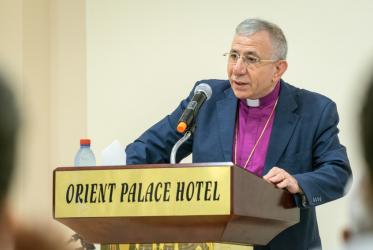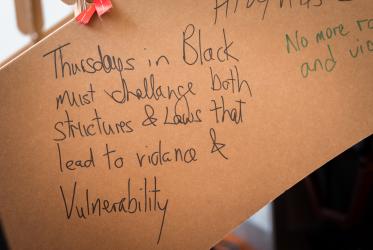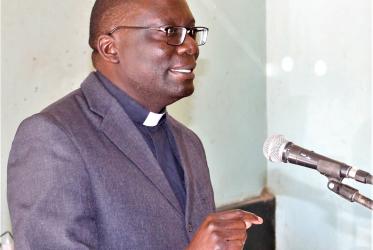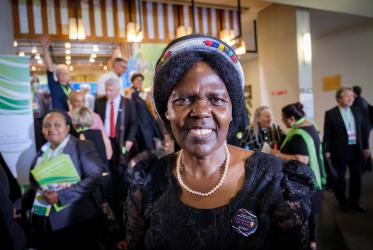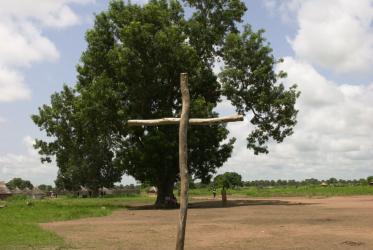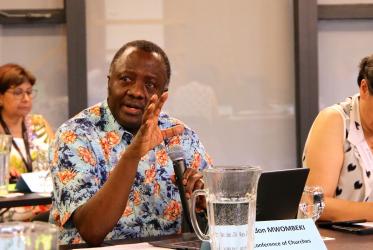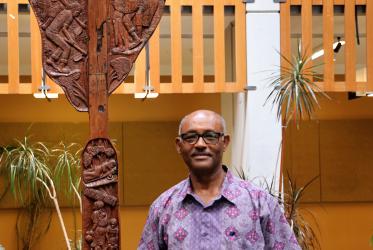Displaying 161 - 180 of 540
10 October 2019
Rev. Damon Mkandawire: “A man is a gender justice champion”
03 October 2019
Ethiopians celebrate Meskel festival
01 October 2019
Bishop Younan receives Catholic peace award
26 September 2019
African religious leaders express new concerns over South Sudan peace
19 September 2019
Kenya schools invest in young people to end new HIV infections
18 September 2019
When you strike the women, you strike a rock
18 September 2019
Dr Saïd Ailabouni: God is on the side of rejected, oppressed, occupied
12 September 2019
Moravian Church in Tanzania launches Thursdays in Black
10 September 2019
Council of Churches in Zambia: “Involve the people in the process”
09 September 2019
Erhard Hermansen: “The church in South Sudan needs our prayers"
09 September 2019
Dr Agnes Abuom: “Enough is enough”
05 September 2019
Regional forum in Nigeria centers on banning nuclear weapons
04 September 2019
South Sudan Council of Churches Assembly issues resolutions
02 September 2019
Former WCC executive finds joy working for peace in Ethiopia
06 August 2019



